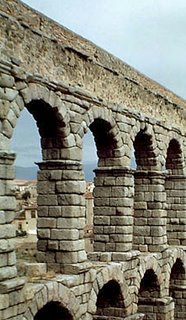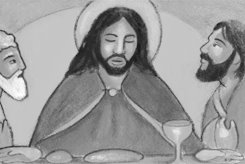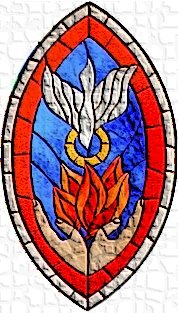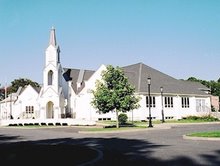Recently the Community Services office of the Diocese sent the priests these reflections on Labor Day. What follows is a brief description of the social teaching of the Church.
“LABOR DAY…a good time to reflect upon the
Catholic Framework for Economic Life a statement of the U.S. Catholic Bishops…
1. The economy exists for the person, not the person for the economy.
2. All economic life should be shaped by moral principles. Economic choices and institutions must be judged by how they protect or undermine the life and dignity of the human person, support the family, and serve the common good.
3. A fundamental moral measure of any economy is how the poor and vulnerable are faring.
4. All people have a right to life and to secure the basic necessities of life (e.g., good clothing, shelter, education, health care, safe environment, economic security).
5. All people have the right to economic initiative, to productive work, to just wages and benefits, to decent working conditions, as well as to join unions or other associations.
6. All people, to the extent they are able, have a corresponding duty to work, a responsibility to provide for the needs of their families, and an obligation to contribute to the broader society.
7. In economic life, free markets have both clear advantages and limits: government has essential
responsibilities and limitations; voluntary groups have irreplaceable roles, but cannot substitute for the proper working of the market and the just policies of the state.
8. Society has a moral obligation, including governmental action where necessary, to assure opportunity, meet basic human needs, and pursue justice in economic life.
9. Workers, owners, stockholders, and consumers are moral agents in economic life. By our choices, initiative, creativity and investment, we enhance or diminish economic opportunity, community life, and social justice.
10. The global economy has moral dimensions and human consequences. Decisions on investment, trade, aid, and development should protect human life and promote human rights, especially for those most in need wherever they might live on this globe.
According to Pope John Paul II, the Catholic tradition calls for “a society of work, enterprise and participation” which “is not directed against the market but demands that the market be appropriately controlled by the forces of society and by the state to assure that the basic needs of the whole society are satisfied.” (Centesimus Annus) All of economic life should recognize the fact that we are all God’s children and members of the human family, called to exercise a clear priority for the ‘least among us’.”
Fr. Bob Hawkins, SEPTEMBER 10, 2006
 Helen Keller often spoke about tragic “blindness” experienced by many “seeing” people. She wrote, “I have walked into people whose eyes are full of sight but who see nothing in sea or sky, nothing in city streets, nothing in books. It would be far better to sail forever in the night of blindness with sense and feeling and mind than to be content with the mere act of seeing.” This Sunday’s Gospel tells the story of Bartimaeus who comes to sight through the intervention of Jesus. It was Jesus who opens our eyes to the goodness of God that exists in our midst. This Friday we gather for our parish auction. I have seen the spirit of Jesus alive in our parish family. So many people have come forward to offer their time, talent and treasure. May we all see our parish come alive as we gather Friday evening.
Helen Keller often spoke about tragic “blindness” experienced by many “seeing” people. She wrote, “I have walked into people whose eyes are full of sight but who see nothing in sea or sky, nothing in city streets, nothing in books. It would be far better to sail forever in the night of blindness with sense and feeling and mind than to be content with the mere act of seeing.” This Sunday’s Gospel tells the story of Bartimaeus who comes to sight through the intervention of Jesus. It was Jesus who opens our eyes to the goodness of God that exists in our midst. This Friday we gather for our parish auction. I have seen the spirit of Jesus alive in our parish family. So many people have come forward to offer their time, talent and treasure. May we all see our parish come alive as we gather Friday evening.







